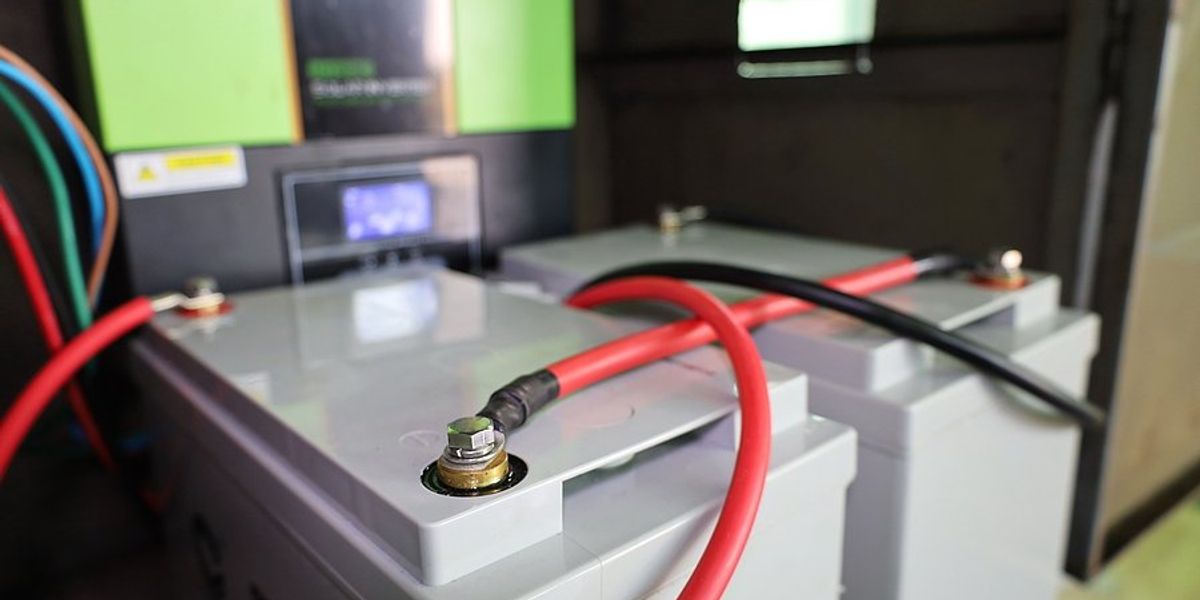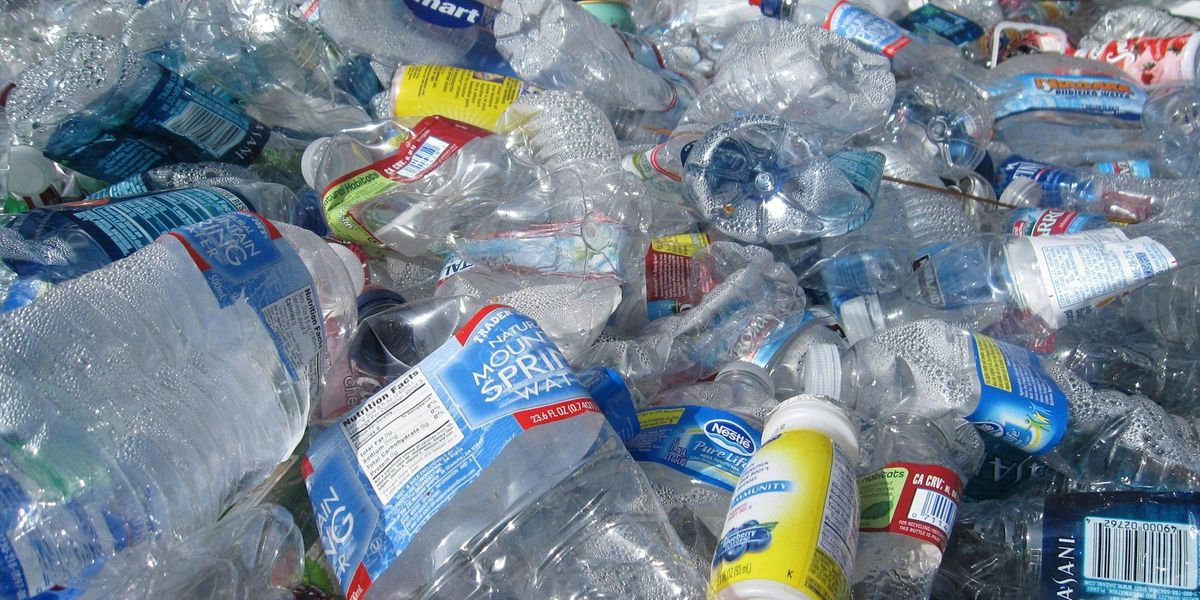
Credit: Srdjanns74/Big Stock Photo
15h
U.S. to stop publicly tracking financial toll of billion-dollar climate disasters
The federal government will no longer collect or share data on the financial costs of extreme weather events, a move that scientists and lawmakers say will obscure the growing risks of climate change.
Rebecca Dzombak and Hiroko Tabuchi report for The New York Times.
In short:
- The National Oceanic and Atmospheric Administration (NOAA) announced it will stop tallying the costs of billion-dollar weather and climate disasters, citing changing priorities and staffing limits.
- The move ends a critical public dataset used by scientists, insurers, and policymakers to analyze the economic impact of extreme weather events, which have become more frequent and severe.
- From 1980 to 2024, NOAA tracked 403 such disasters; that data will remain archived, but events from 2025 onward — like this year’s devastating Los Angeles wildfires — will no longer be assessed.
Key quote:
“You can’t fix what you don’t measure. If we lose this information about the costs of these disasters, the American people and Congress won’t know what risks climate is posing to our country.”
— Erin Sikorsky, director of The Center for Climate and Security
Why this matters:
As extreme weather events intensify across the United States, the decision to stop tracking their financial cost erases a transparent records of how much climate change is affecting the economy and public health. Climate-driven disasters force cities and states to rebuild, often with taxpayer money, and the cumulative toll can shape budgets, insurance markets, and infrastructure priorities. Without centralized, consistent data, decision-makers lose insight into where help is most needed or how much recurring weather patterns are costing communities. Researchers also rely on this information to study trends and assess long-term vulnerabilities, especially in frontline areas already under stress.
Learn more: EPA plans to dismantle key offices overseeing climate and air pollution regulation
Keep reading...Show less
Read the Full Article on www.nytimes.com
www.nytimes.com
Credit: Pei Lin/Big Stock Photo
15h
Congress proposes major reforms to FEMA in bid to counter Trump cuts
A bipartisan House effort seeks to restructure the Federal Emergency Management Agency (FEMA) into an independent agency and expand its powers amid President Trump’s push to shrink or eliminate it.
In short:
- A bipartisan House bill would remove FEMA from the Department of Homeland Security and elevate it to a Cabinet-level agency, giving it direct access to the president.
- The proposal would allow FEMA to fund permanent repairs for disaster-damaged homes and penalize states that fail to implement disaster mitigation efforts.
- The legislation aims to challenge President Trump’s moves to weaken FEMA, including his cancellation of a major disaster preparedness grant program.
Key quote:
“I do not believe it is in the best interests of the American people to eliminate the Federal Emergency Management Agency. Having said that, I’m not in a position to make a decision.”
— Cameron Hamilton, former acting administrator of FEMA, who was fired on Thursday following this statement.
Why this matters:
Federal disaster relief shapes how communities respond to wildfires, hurricanes, floods, and other climate-driven disasters — and how quickly they recover. FEMA has long been a lifeline for vulnerable populations, including low-income families and rural communities without insurance, who struggle to rebuild after catastrophe. Turning FEMA into a more independent agency with broader authority to make permanent repairs could mean less dependence on costly temporary housing and faster stabilization for displaced residents. But President Trump’s plans to shrink or abolish FEMA reflect a broader ideological shift toward state-centered disaster response, which critics warn could widen disparities in recovery.
Related: Trump’s deregulation and FEMA cuts put Mississippi River and others at extreme risk, report warns
Keep reading...Show less
Read the Full Article on www.eenews.net
www.eenews.net
Credit: Thomas Richter/Unsplash
15h
Trump administration budget shifts lead to layoffs at key federal renewable energy lab
More than 100 employees at the National Renewable Energy Laboratory were laid off last week following new federal orders and funding changes under the Trump administration.
In short:
- The National Renewable Energy Laboratory (NREL) confirmed that 114 employees were involuntarily laid off, including both research and operations staff.
- The lab cited “stop work orders,” “new federal directives,” and “budgetary shifts” from federal agencies as the reasons behind the workforce reductions.
- NREL, which employs nearly 3,700 people across its Colorado, Alaska, and Washington, D.C. campuses, is the Department of Energy’s primary research facility for renewable energy systems.
Key quote:
“ ... NREL has experienced workforce impacts affecting 114 employees across the laboratory, including staff from both research and operations, who were involuntarily separated today.”
— NREL spokesperson
Why this matters:
As the Department of Energy’s primary lab for researching wind, solar, and other renewable power sources, NREL supports technology that helps reduce air pollution, lower greenhouse gas emissions, and limit reliance on fossil fuels. The Trump administration’s renewed opposition to renewable energy come amid rising global demand for decarbonization and growing evidence of climate-related harm to human health and ecosystems. Cutting research jobs at a time when extreme weather, wildfire smoke, and grid instability are worsening could slow efforts to modernize the electric grid and reduce the health impacts tied to fossil fuel use. The lab’s downsizing also suggests a broader retreat from science-based energy policy, potentially disrupting ongoing research partnerships and long-term innovation.
Read more: Political shifts stall $8 billion in clean energy projects as U.S. renewables boom
Keep reading...Show less
Read the Full Article on thehill.com
thehill.com
Credit: kaninw/Big Stock Photo
15h
Virginia governor blocks bipartisan solar and battery bills, citing cost to utility customers
Gov. Glenn Youngkin vetoed two bipartisan clean energy bills in Virginia that would have expanded small-scale solar and battery storage, despite support from utilities and environmental groups.
In short:
- The vetoed legislation would have significantly increased solar credits and energy storage targets for Dominion Energy and Appalachian Power, enabling more residential and commercial solar installations and long-duration battery projects.
- Youngkin argued the measures would impose costs on fossil fuel-dependent utility customers and said the market should drive adoption of newer technologies, calling battery storage too expensive.
- Environmental advocates and some lawmakers criticized the vetoes as part of a broader effort to weaken the Virginia Clean Economy Act, passed in 2020 to transition utilities to carbon-free energy by mid-century.
Key quote:
“I think the amendments just show who he truly is: not an ‘all-of-the-above’ guy. He just doesn’t like clean energy.”
— Josephus Allmond, staff attorney at the Southern Environmental Law Center
Why this matters:
Solar and battery storage are important components of efforts to decarbonize the power grid, reduce air pollution, and limit climate change. Small-scale solar gives homeowners and businesses the chance to generate their own electricity, reducing dependence on fossil fuel-powered utilities and softening demand during peak hours. Energy storage, especially long-duration systems, allows renewable energy to be used even when the sun isn’t shining or the wind isn’t blowing. That flexibility is essential as states like Virginia plan to meet ambitious zero-carbon mandates. In Virginia, these vetoes signal a potential retreat from the state’s 2020 climate law just as the grid faces rising stress from growth in energy-hungry data centers and climate-fueled weather extremes.
Related: Virginia students demand stronger climate action from their universities
Keep reading...Show less
Read the Full Article on insideclimatenews.org
insideclimatenews.org
Credit: Artyom Korshunov/Unsplash
15h
Trump’s mining push undermines itself by gutting clean energy demand
The Trump administration is accelerating domestic mining projects while simultaneously undercutting the clean energy policies that would create a stable U.S. market for critical minerals like lithium and graphite.
In short:
- President Trump’s executive actions aim to boost U.S. mineral production by fast-tracking mining permits and proposing tariffs on foreign mineral supplies and equipment.
- At the same time, cuts to clean energy incentives, such as electric vehicle tax credits and clean-tech loans, are dismantling the demand that would sustain domestic mineral markets.
- Legal uncertainty from regulatory rollbacks may further deter investors and delay mining projects despite expedited permitting efforts.
Key quote:
“Without a clear, consistent demand signal, no mining company would put a single drill in the ground to make an investment.”
— Kwasi Ampofo, lead mining and minerals analyst at BloombergNEF
Why this matters:
Critical minerals like lithium, graphite, and rare earths are the backbone of modern clean energy technology, from electric vehicles to renewable grid storage. They are also increasingly important to national defense systems and global tech manufacturing. While China currently dominates mineral processing and pricing, many Western nations, especially the U.S., are eager to diversify supply chains. But these supply chains only function if industries, from car manufacturers to battery makers, are actively buying materials. When governments weaken the market for clean tech, they kneecap their own ability to attract private investment in mining. Without long-term demand, miners won’t take financial risks, and processing facilities stall. The United States' contradictory approach may cost it both economic leverage and environmental resilience.
Related: Trump opens protected lands in Nevada and New Mexico to drilling and mining
Keep reading...Show less
Read the Full Article on www.theatlantic.com
www.theatlantic.com
Credit: Photo by tanvi sharma on Unsplash
15h
Plastics industry misled public on decades-old recycling tech
The fossil fuel industry has aggressively promoted “advanced recycling” as a breakthrough solution to plastic pollution — even while knowing it rarely works.
In short:
- A new report from the Center for Climate Integrity (CCI) reveals that plastic producers have long known advanced recycling — also called chemical recycling — is neither economically nor technically viable at scale.
- Despite public promises of circularity, most facilities end up burning plastic into fuel, not turning it into new plastic, undermining claims of sustainability.
- Internal documents and past statements show companies were aware of the high costs, pollution, and technological flaws for decades but kept pushing the narrative of innovation.
Key quote:
"The information ecosystem around advanced recycling is totally dominated by the industry itself."
— Davis Allen, investigative researcher at the CCI and author of the report
Why this matters:
Plastic pollution is a public health crisis — linked to cancer, hormone disruption, and environmental degradation. As the public demands action, so-called false solutions like advanced recycling delay real progress and perpetuate harm under the guise of innovation. Rather than closing the loop, these processes more often resemble incineration, releasing toxic byproducts along the way. Burning plastic releases a cocktail of air pollutants linked to asthma, cancers, and endocrine disruption — especially in the low-income communities that house many of these facilities. And still, the narrative of innovation persisted, bolstered by millions in lobbying and slick campaigns promising a “circular economy.”
Read more from EHN:
Keep reading...Show less
Read the Full Article on www.theguardian.com
www.theguardian.com
Credit: Yannis Papanastasopoulos/Unsplash
16h
Trump’s order on deep-sea mining risks fragile ocean ecosystems and global cooperation
President Trump’s decision to fast-track deep-sea mining permits without international agreement has alarmed scientists and conservationists who warn of long-lasting environmental damage and geopolitical fallout.
In short:
- Trump’s April executive order directs the National Oceanic and Atmospheric Administration to expedite mining permits in international waters, sidestepping the United Nations-backed International Seabed Authority.
- Conservationists argue that deep-sea mining could harm biodiversity, disrupt the ocean's carbon cycle, and permanently alter habitats that evolve over millennia.
- Critics warn that unilateral U.S. action could trigger international conflict and unravel decades of cooperative ocean governance.
Key quote:
“Unilateral action to pursue deep-sea mining opens up a whole Pandora’s box of questions in terms of conflict on the high seas, conflict between nations, and whether or not this is an extractive industry that we even need.”
— Jeff Watters, vice president of external affairs, Ocean Conservancy
Why this matters:
The deep ocean remains one of Earth’s last largely unexplored frontiers, home to strange and ancient lifeforms adapted to crushing pressure, total darkness, and cold temperatures. Many of these species — some newly discovered, some not yet named — play yet-unknown roles in global ecological systems. Deep-sea mining operations threaten to destroy these habitats for minerals like cobalt and nickel, used in clean energy and digital tech. Unlike forests that regenerate over decades, deep-sea ecosystems may take centuries to recover — if at all. Stirring up sediments and releasing heavy metals could also affect midwater food chains and even alter carbon storage functions critical to climate balance. International law considers the deep sea a shared resource. If powerful nations like the U.S. move ahead without consensus, it could not only accelerate ecological harm but also undermine the rules designed to keep ocean exploitation in check.
Learn more: Humans may start mining the deep sea despite limited knowledge
Keep reading...Show less
Read the Full Article on e360.yale.edu
e360.yale.edu
From our Newsroom
Multiple Houston-area oil and gas facilities that have violated pollution laws are seeking permit renewals
One facility has emitted cancer-causing chemicals into waterways at levels up to 520% higher than legal limits.
Pennsylvania health advocates say Trump’s first 100 days in office have caused “100 harms” to local communities
“They're terrorizing these scientists because they want to keep them silent.”
Regulators are underestimating health impacts from air pollution: Study
"The reality is, we are not exposed to one chemical at a time.”
Two years into his term, has Gov. Shapiro kept his promises to regulate Pennsylvania’s fracking industry?
A new report assesses the administration’s progress and makes new recommendations
An open letter from EPA staff to the American public
“We cannot stand by and allow this to happen. We need to hold this administration accountable.”
New evidence links heavy metal pollution with wildfire retardants
“The chemical black box” that blankets wildfire-impacted areas is increasingly under scrutiny.













